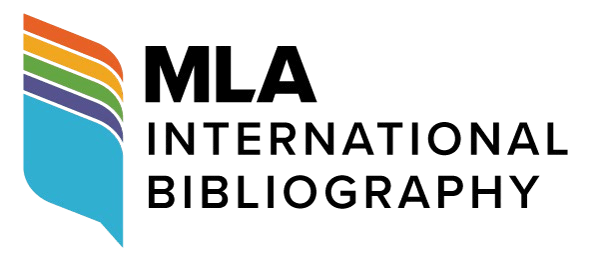Переосмислення літературної спадщини Р. Кіплінга: вірш «Якщо» та його феміністичні пародії
DOI:
https://doi.org/10.58423/2786-6726/2025-1-152-169Ключові слова:
історія, історичний контекст, тавро, імперський, расистськийАнотація
У статті зазначено, що Англія в ХІХ столітті, особливо в перші роки правління королеви Вікторії, перебувала на піку соціального та економічного розвитку Західного світу, лідируючи майже в усіх сферах. Це був час, коли народився один з найвидатніших і найбільш неоднозначних письменників – Редьярд Кіплінг, що потрапив під пильне око як критиків, так і тогочасних письменників, які вбачали в його поглядах і творах імперіалістичні та расистські мотиви. З іншого боку, були і є критики та біографи, які хоч і вважають його суперечливим автором, але вбачають у ньому одного з найвидатніших британських письменників. Таким чином, стаття присвячена виявленню витоків ототожнення великого поета з «імперіалістичним» та «расистським» світоглядом, а також обґрунтуванню чи спростуванню цих звинувачень, що, у свою чергу, може сприяти кращому розумінню літературної спадщини Редьярда Кіплінга та її впливу на світове літературне мистецтво.
Наголошено на тому, що суперечливі, а подекуди й конфліктні трактування творчості Кіплінга можна пояснити низкою чинників як об’єктивних, так і суб’єктивних. Насамперед це надзвичайна складність світу в історико-культурному періоді, в якому жив письменник і формувалося його мислення. З огляду на це Кіплінга можна вважати справжнім представником своєї епохи, людиною, яка залишилася вірною своїй нації, письменником, твори якого слугують відображенням всієї реальності епохи з усіма її ідеями, віруваннями та очікуваннями. З позиції поезії – це зовсім інший світ, в якому відчувається особливе бачення письменника, його оригінальний талант і досвід журналіста. Однак, визнаючи, що його літературні твори можуть сприймати по-різному, слід також підкреслити значущість контексту і часу, в якому вони були написані.
Зазначено, що твори Кіплінга, як і багатьох інших авторів минулого, тісно пов’язані з історичним контекстом і відображають погляди та норми свого часу, які не обов’язково відповідають сучасним настановам та ідеалам. Цілком зрозуміло, що наміром автора було відобразити реалії свого часу, а не пропагувати певні ідеології. Але навіть попри постійні спроби затаврувати його як прихильника і пропагандиста британського колоніалізму, ім’я та твори Кіплінга продовжують займати належне місце не лише в історії англійської та світової літератури, а й у пам’яті поколінь читачів.
Посилання
Adams, Jad 2006. The girl he left behind. The Guardian. 29 January 2006. https://www.theguardian.com/books/2006/jan/28/featuresreviews.guardianreview33 (Accessed: 25.02.2025).
Adams, Jad 2012. Kipling. London: Haus Publishing.
Benfey, Christopher 2019. Triumph and Disaster: The Tragic Hubris of Rudyard Kipling’s ‘If—’. The New York Review. 3 July 2019. https://www.nybooks.com/online/2019/07/03/triumph-and-disaster-the-tragic-hubris-of-rudyard-kiplings-if/ (Accessed: 25.02.2025).
Cox, James 2018. Students paint over mural of Rudyard Kipling’s If poem claiming he was racist. The Sun. 19 July 2018. https://www.thesun.co.uk/news/6814880/students-rudyard-kipling-if-racism-maya-angelou/ (Accessed: 01.03.2025).
Eliot, Thomas Stearns 1919. Kipling Redivivus. Athenaeum.
Frost, Simon 2017. Othering Ourselves: Re-reading Rudyard Kipling and ‘The Strange Ride of Morrowbie Jukes’ (1885). Nordic Journal of English Studies 16/2: pp. 12–32. https://doi.org/10.35360/njes.403
Gibbons, Fiachra 2000. Kipling kept his head when replying to feminist. The Irish Times. 29 April 2000. https://www.irishtimes.com/news/kipling-kept-his-head-when-replying-to-feminist-1.265380 (Accessed: 25.02.2025).
Gilmour, David 2003. The Long Recessional: The Imperial Life of Rudyard Kipling. New York: Farrar, Straus and Giroux.
Gordon, Williams 1936. Rudyard Kipling and His Critics. The Australian Quarterly 8/30: pp. 65–70. https://doi.org/10.2307/20629328
Grace, Annabeth 2020. ‘If’ Poems for Girls. Feminine Finishing School. 2 November 2020. https://femininefinishing.school.blog/2020/11/02/if-poems-for-girls/ (Accessed: 25.02.2025).
Kent, S. Kelley 2015. Feminist and New Historicist Readings of Kipling’s “The Man Who Would Be King”. Inquiries Journal 7/3. http://www.inquiriesjournal.com/a?id=1019 (Accessed: 25.02.2025).
Kinsella, Alice 2017. When by Alice Kinsella: a poem for International Women’s Day. The Irish Times. 8 March 2017. https://www.irishtimes.com/culture/books/when-by-alice-kinsella-a-poem-for-international-women-s-day-1.3001327 (Accessed: 25.02.2025).
Kipling, Rudyard 1971. The Critical Heritage. Edited by Roger Lancelyn Green. New York: Barnes & Noble, Inc.
Lycett, Andrew 2016. Rudyard Kipling. London: Weidenfeld & Nicolson.
Marcu, Nicoleta Aurelia 2019. Kipling and the Age of the Empire. Acta Marisiensis. Philologia 1/1: pp. 99–107. https://doi.org/10.2478/amph-2022-0010
McClure, John 1981. Kipling and Conrad: The Colonial Fiction. Cambridge: Harvard University Press.
Meyers, Jeffrey 1973. Fiction and the Colonial Experience. London: Routledge.
Raskin, Jonah 2009. The Mythology of Imperialism: A Revolutionary Critique of British Literature and Society in the Modern Age. New York: Monthly Review Press.
Rogers, Pat 2001. The Oxford Illustrated History of English Literature. Oxford: Oxford University Press.
Sandison, Alan 1967. The Wheel of Empire: A Study of the Imperial Idea in Some Late Nineteenth and Early Twentieth Century Fiction. London: Macmillan.
Showalter, Elaine 1990. Sexual Anarchy: Gender and Culture at the Fin de Siècle. London: Virago.
URL1: Crane, Frank 1925. Boy wanted. Williamstown Chronicle (Vic.: 1856–1954), p. 2. https://trove.nla.gov.au/newspaper/article/69516487 (Accessed: 25.02.2025).
URL2: “IF” with the usual to Kipling 1924. The Advertiser (Fremantle, WA: 1921–1932), p. 3. http://nla.gov.au/nla.news-article256013284 (Accessed: 25.02.2025).
URL3: “IF” 1926 (With Apologies to Kipling). The Narrogin Observer (WA: 1918–1955), p. 7. http://nla.gov.au/nla.news-article260224578 (Accessed: 25.02.2025).
URL4: Lincoln Otis, Elizabeth 1931. An “If” for Girls. The Poetry Foundation. https://www.poetryfoundation.org/poems/52705/an-if-for-girls (Accessed: 25.02.2025).
URL5: Nurse’s Version of Kipling’s “If” 1939. Maryborough Chronicle, Wide Bay and Burnett Advertiser (Qld.: 1860–1947), p. 2. http://nla.gov.au/nla.news-article151671231 (Accessed: 25.02.2025).
URL6: The salesgirl’s “If” 1942. The Herald (Melbourne, Vic.: 1861–1954), p. 5. http://nla.gov.au/nla.news-article245201905 (Accessed: 25.02.2025).
URL7: ‘IF’ For the Housewife 1948. http://nla.gov.au/nla.news-article243526199 (Accessed: 25.02.2025).
URL8: Serena Williams reads reimagined version of Rudyard Kipling’s famous poem ‘If’. https://www.bbc.com/sport/av/56294852 (Accessed: 25.02.2025).
Wilde, Oscar 2000. The Complete Letters of Oscar Wilde. Edited by Merlin Holland and Rupert Hart-Davis. New York: Henry Holt and Company.
Woolf, Virginia 1929. A Room of One’s Own. London: The Hogarth Press.
Downloads
Опубліковано
Як цитувати
Номер
Розділ
Ліцензія
Автори зберігають авторські права та надають журналу право першої публікації. Водночас робота ліцензується за умовами ліцензії Creative Commons Attribution 4.0 International License (CC BY 4.0), що дозволяє іншим поширювати матеріал за умови належного посилання на автор(ів) та первинну публікацію в цьому журналі.

















